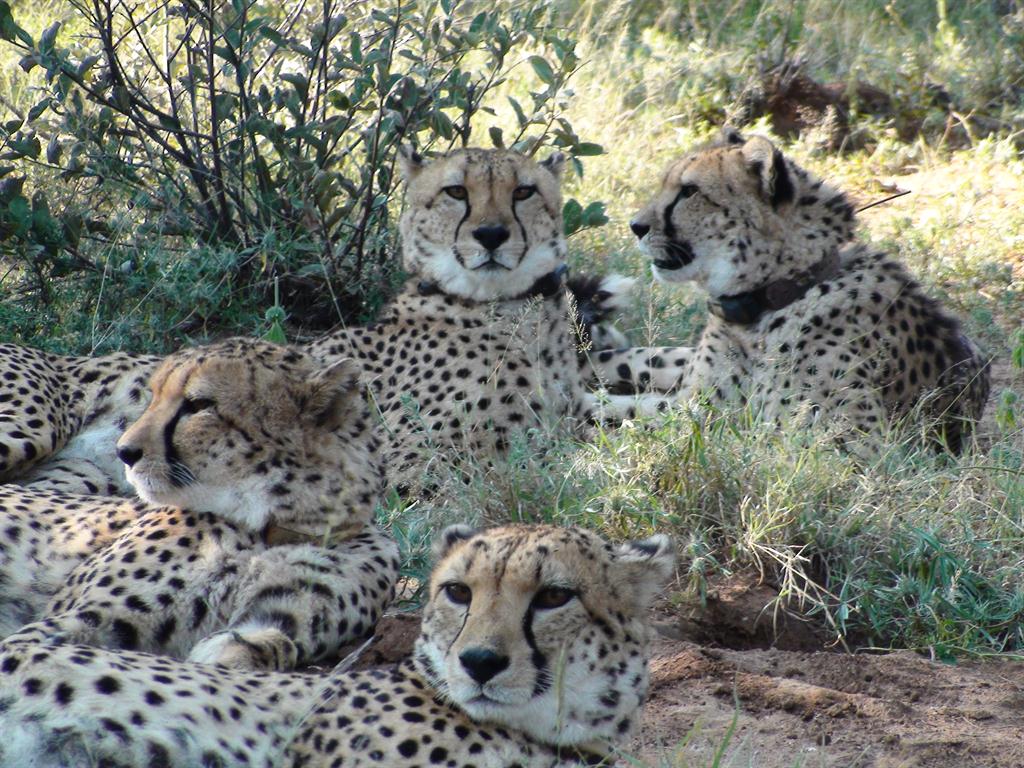Technology at its best
Smart Parks is a Dutch social enterprise based in Utrecht. A smart park is a nature reserve that uses smart sensor technology to collect information for the improvement of nature protection and management.
STAFF REPORTER
Over the last six months, Dutch technology enterprise Smart Parks has provided the Cheetah Conservation Fund (CCF) with new technology to monitor the animals and assets on the CCF’s 67 000-hectare private reserve, model farm and field research and conservation centre in Otjiwarongo, Namibia.
The world’s first Cheetah smart park will help the CCF manage the more than 40 permanent resident cheetahs that call the CCF their home.
With the Smart Parks LoRaWAN-network in place, the CCF can easily deploy collars and other sensors in the landscape and receive near real-time location updates at an affordable cost.
“We are very excited to have this new technology to help the CCF staff keep an eye on our cheetahs,” Dr Laurie Marker, CCF founder and executive director, said.
“With the pandemic, we have had to exist with fewer resources, so getting the Smart Parks LoraWAN-network installed during this time is an advancement we very much appreciate.”
The LoRaWAN network will enable the CCF to deploy battery-powered sensors and devices across its entire wildlife reserve for real-time monitoring and fine-scale data collection.
This will allow CCF staff to optimise efficiency in operations within the landscape they manage, and the network will enable CCF scientists to collect data for research in new, more efficient ways.
Because of travel restrictions imposed by the Covid-19 pandemic, Smart Parks executed the project in conjunction with a Namibian technology partner – another first.
While Smart Parks engineers created the high-end technology solution in the Netherlands, Namibian electronics and technology company, Teltech, performed the instalment remotely under the direction of the Dutch engineers.
The CCF’s cheetah curator, Eli Walker, supervised the design and installation of the cheetah smart park on behalf of the CCF.
Walker’s understanding of cheetah ecology helped the engineers maximise the potential benefits from the Smart Parks LoRaWAN network, and his knowledge of the CCF’s animals and landscape helped make the remote installation a success.
Luuk Eikelboom, Smart Parks Namibia coordinator, said: “Working with local technology partners in Africa sheds a new light on Smart Parks’ working model.
“Going forward, this allows us to scale the solution, provide more wildlife protection and simultaneously boost the economy by providing local employment.
“We’re excited to say that we’ve been able to turn the coronavirus setbacks into something positive for wildlife and the local economy.”
Over the last six months, Dutch technology enterprise Smart Parks has provided the Cheetah Conservation Fund (CCF) with new technology to monitor the animals and assets on the CCF’s 67 000-hectare private reserve, model farm and field research and conservation centre in Otjiwarongo, Namibia.
The world’s first Cheetah smart park will help the CCF manage the more than 40 permanent resident cheetahs that call the CCF their home.
With the Smart Parks LoRaWAN-network in place, the CCF can easily deploy collars and other sensors in the landscape and receive near real-time location updates at an affordable cost.
“We are very excited to have this new technology to help the CCF staff keep an eye on our cheetahs,” Dr Laurie Marker, CCF founder and executive director, said.
“With the pandemic, we have had to exist with fewer resources, so getting the Smart Parks LoraWAN-network installed during this time is an advancement we very much appreciate.”
The LoRaWAN network will enable the CCF to deploy battery-powered sensors and devices across its entire wildlife reserve for real-time monitoring and fine-scale data collection.
This will allow CCF staff to optimise efficiency in operations within the landscape they manage, and the network will enable CCF scientists to collect data for research in new, more efficient ways.
Because of travel restrictions imposed by the Covid-19 pandemic, Smart Parks executed the project in conjunction with a Namibian technology partner – another first.
While Smart Parks engineers created the high-end technology solution in the Netherlands, Namibian electronics and technology company, Teltech, performed the instalment remotely under the direction of the Dutch engineers.
The CCF’s cheetah curator, Eli Walker, supervised the design and installation of the cheetah smart park on behalf of the CCF.
Walker’s understanding of cheetah ecology helped the engineers maximise the potential benefits from the Smart Parks LoRaWAN network, and his knowledge of the CCF’s animals and landscape helped make the remote installation a success.
Luuk Eikelboom, Smart Parks Namibia coordinator, said: “Working with local technology partners in Africa sheds a new light on Smart Parks’ working model.
“Going forward, this allows us to scale the solution, provide more wildlife protection and simultaneously boost the economy by providing local employment.
“We’re excited to say that we’ve been able to turn the coronavirus setbacks into something positive for wildlife and the local economy.”




Comments
Namibian Sun
No comments have been left on this article